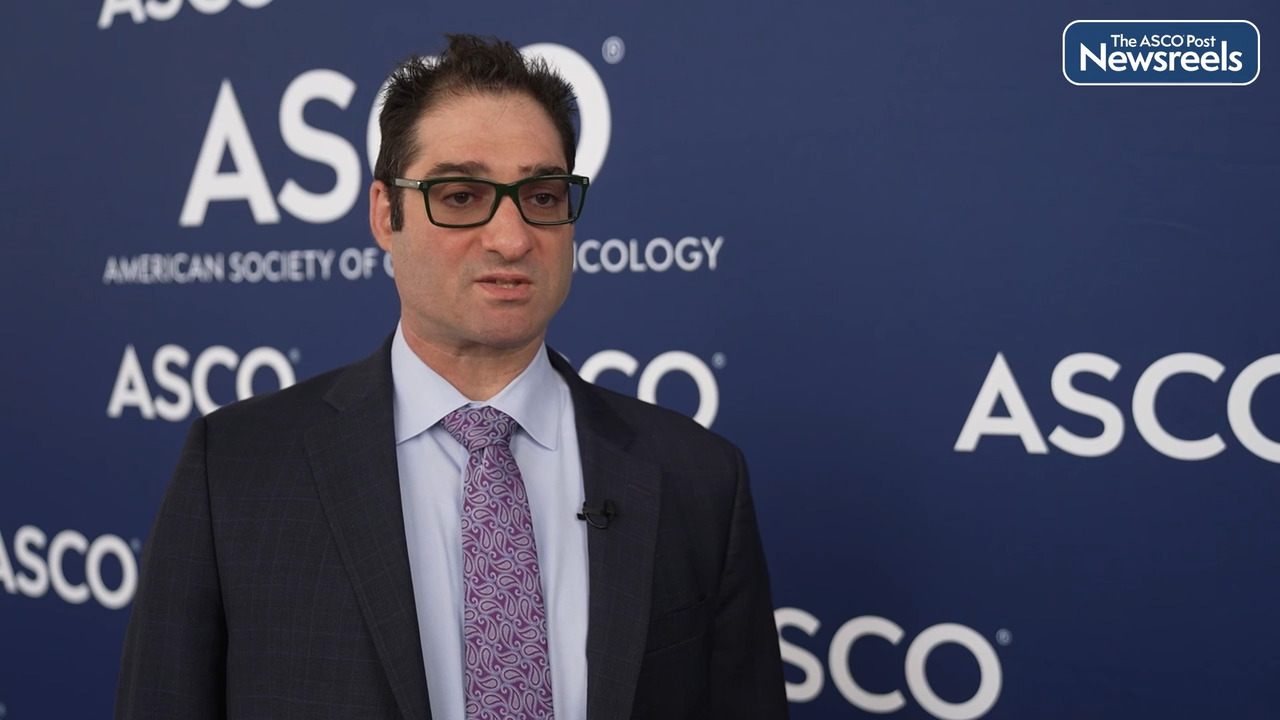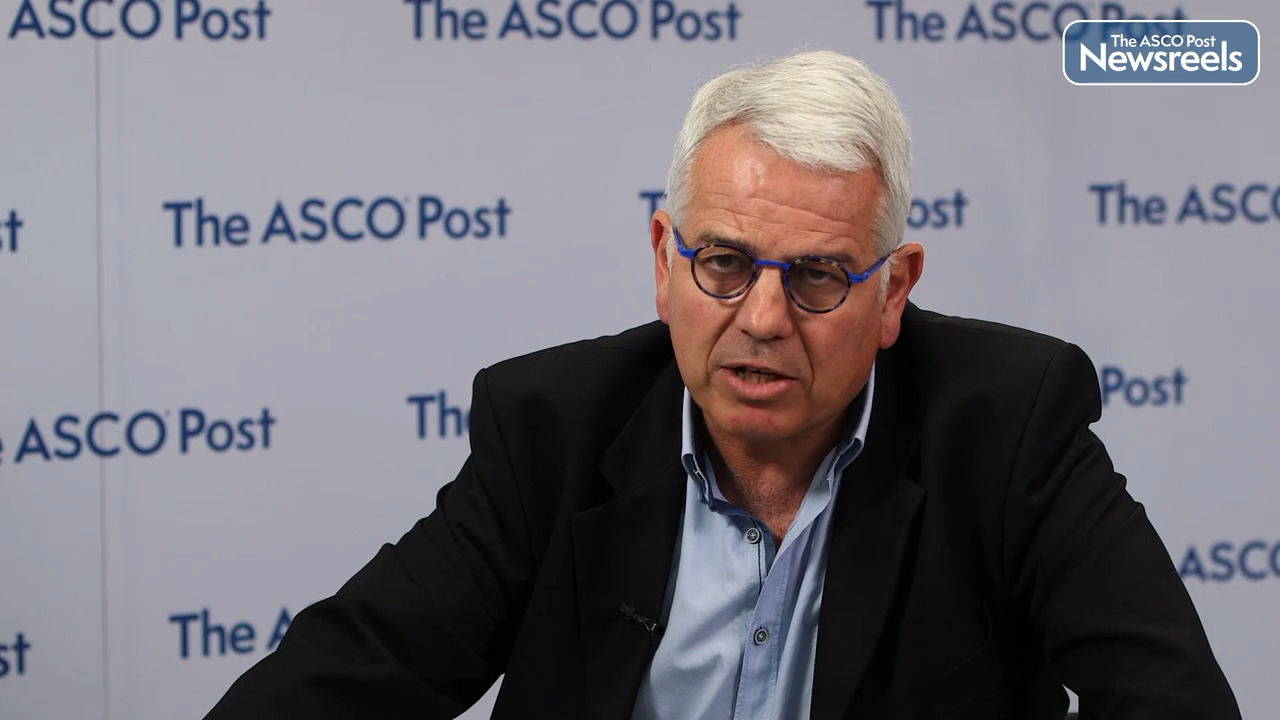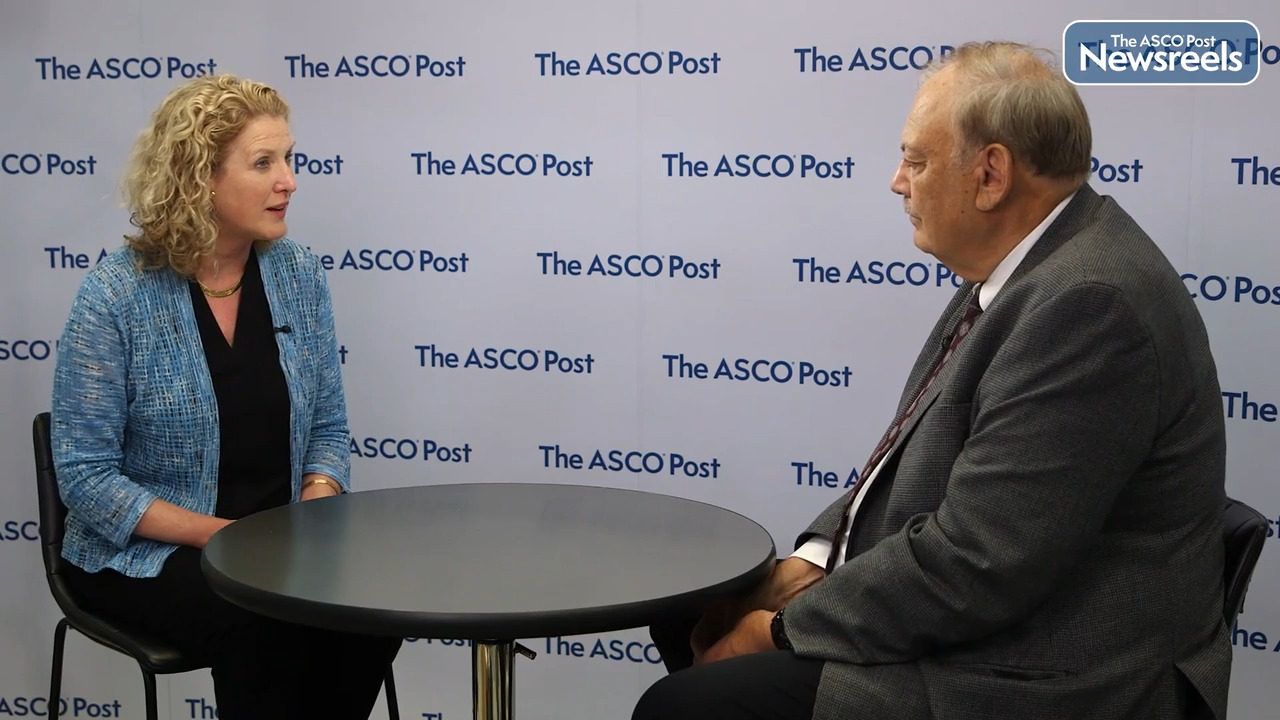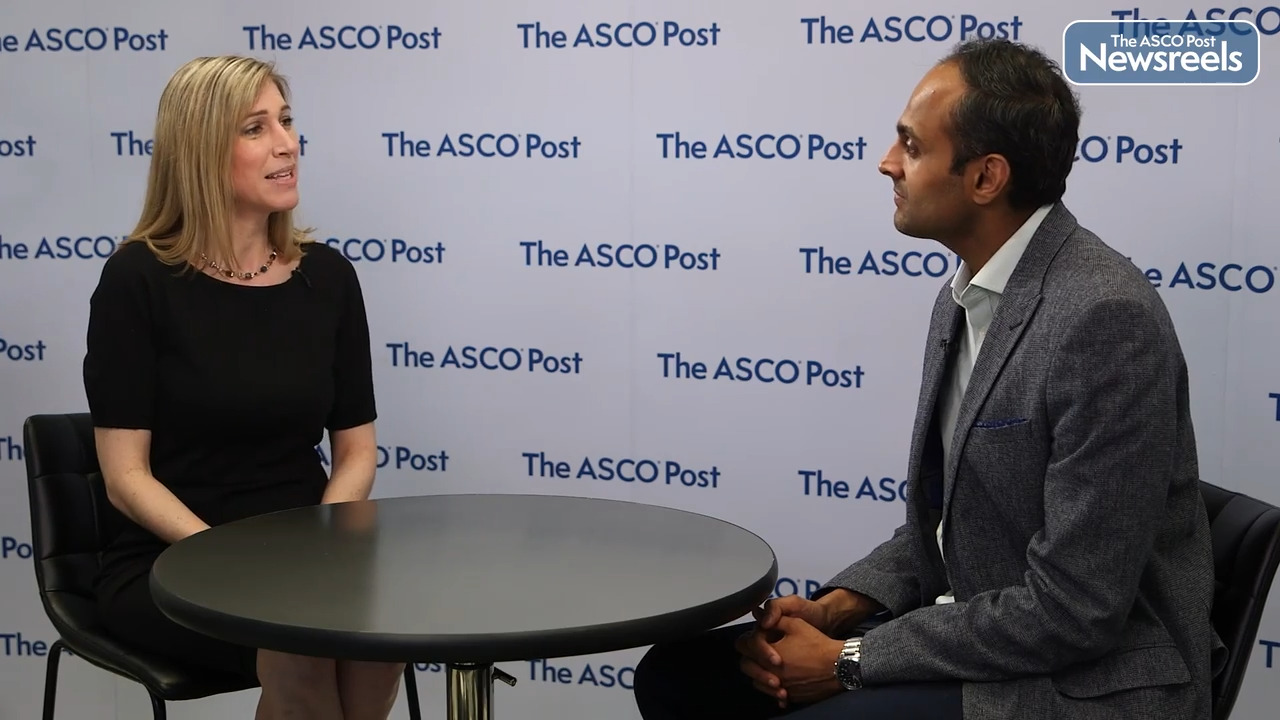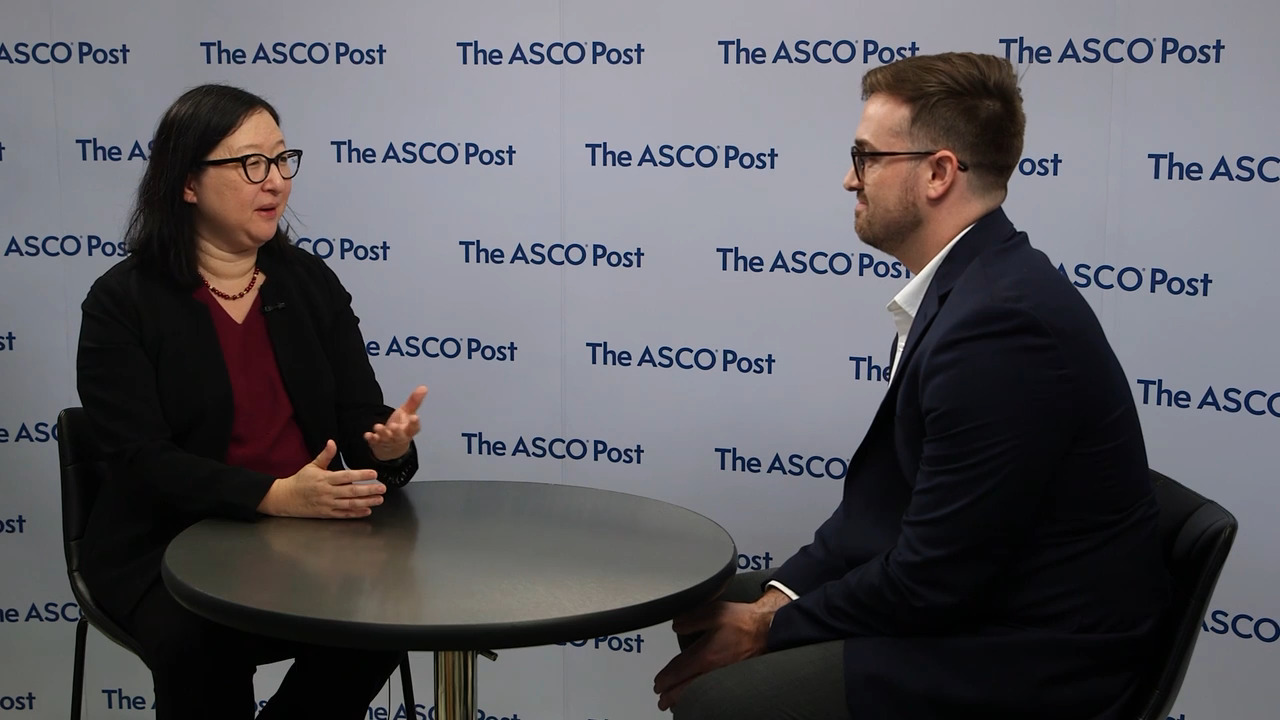Omid Hamid, MD, on Advanced Melanoma: Durable Response With Fianlimab Plus Cemiplimab
2023 ASCO Annual Meeting
Omid Hamid, MD, of The Angeles Clinic & Research Institute, discusses study findings on fianlimab plus cemiplimab-rwlc, which showed clinical activity in patients with advanced melanoma, comparing favorably with other approved combinations of immune checkpoint inhibitors in the same clinical setting. This is the first indication that dual LAG-3 blockade may produce a high level of activity with significant overall response rate after adjuvant anti–PD-1 treatment. A phase III trial of this regimen in treatment-naive patients with advanced melanoma is ongoing (Abstract 9501).
Transcript
Disclaimer: This video transcript has not been proofread or edited and may contain errors.
Omid Hamid, MD:
This study enrolled patients with advanced or metastatic melanoma who had not seen anti-PD-1 antibody in the advanced stage. We treated these patients with melanoma in three cohorts with fianlimab, which is an anti-LAG-3 antibody and cemiplimab, an anti-PD-1 antibody at doses of 1,600 milligrams and 350 milligrams every three weeks. This is important because it's a higher dose of anti-LAG antibody and an increased frequency of dosing. There were three cohorts. The first cohort had patients who had seen a non-PD-1 prior therapy, the second had a treatment naive patients, and the third were for patients who had seen adjuvant PD-1 therapy and had more than six months without recurrence and then became advanced and were treated. What we saw in these patients in these sequentially accrued groups was a high response rate, 63%, 63%, and 56% in the prior adjuvant therapeutic group.
The disease control rate was equally impressive, 80%, 80%, and 67%. The duration of response has not been reached in any of these cohorts. What we saw in terms of toxicity was consistent with prior PD-1 LAG-3 combinations with an increased incidence of manageable adrenal insufficiency. For me, the most important subset of patients here is the third cohort. For patients who had seen prior PD-1 in the adjuvant setting and then recurred after six months, we see a 62% response rate and a progression-free survival of 12 months. This is the best and highest response and control in patients who have seen prior PD-1 reported to date. The duration of response here has not been reached, and in all patients, a progression-free survival of 15 months was seen, which compares favorably in response rate, duration of response, toxicities, and progression-free survival of other cohorts of patients presented in relativity 47 or checkmate 67.
Related Videos
The ASCO Post Staff
Jonathan W. Riess, MD, of the University of California, Davis Comprehensive Cancer Center, explores the findings of three important clinical trials in lung cancer treatment: whether to incorporate immune checkpoint inhibitors into the treatment of EGFR-mutated lung cancer, the importance of central nervous system activity in EGFR-mutant lung cancer, and new therapies for disease with EGFR exon 20 insertion.
The ASCO Post Staff
Christian Pfister, MD, PhD, of Rouen University Hospital, discusses phase III results from the VESPER trial, which showed that dose-dense methotrexate, vinblastine, doxorubicin, and cisplatin provided a better overall survival rate at 5 years and improved disease-specific survival compared with gemcitabine as perioperative chemotherapy in patients with muscle-invasive bladder cancer (Abstract LBA4507).
The ASCO Post Staff
Lisa A. Carey, MD, of the University of North Carolina at Chapel Hill, and Dennis J. Slamon, MD, PhD, of the University of California, Los Angeles, discuss phase III study findings on ribociclib plus endocrine therapy as adjuvant treatment in patients with hormone receptor–positive, HER2-negative early breast cancer. When added to standard-of-care endocrine therapy, ribociclib improved invasive disease–free survival with a well-tolerated safety profile (Abstract LBA500).
The ASCO Post Staff
Alicia K. Morgans, MD, MPH, and Praful Ravi, MRCP, MBBChir, both of Dana-Farber Cancer Institute, discuss an individual patient-data analysis of randomized trials from the ICECAP collaborative. A PSA nadir of ≥ 0.1 ng/mL within 6 months after radiotherapy completion was prognostic for prostate cancer–specific, metastasis-free, and overall survival in patients receiving radiotherapy plus androgen-deprivation therapy for localized prostate cancer. These findings may help identify patients for therapy de-escalation trials (Abstract 5002).
The ASCO Post Staff
Eunice S. Wang, MD, of Roswell Park Comprehensive Cancer Center, and Gregory Roloff, MD, of the University of Chicago, discuss data that are the first to demonstrate post–FDA approval efficacy and toxicity rates of brexucabtagene autoleucel in adults with relapsed or refractory B-cell acute lymphoblastic leukemia. Although the data may confirm high response rates associated with this agent, they also highlight the need for interventions to reduce associated toxicities (Abstract 7001).
